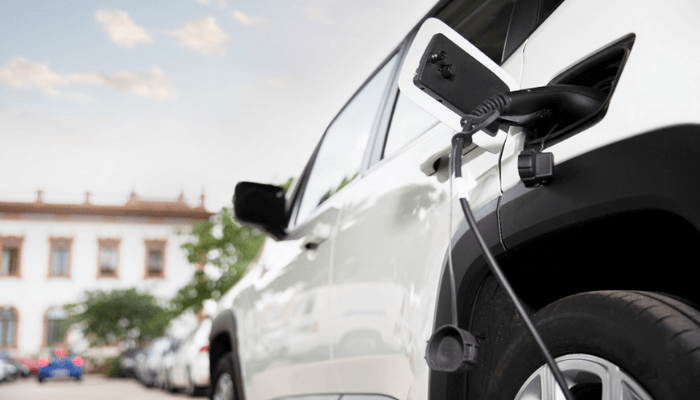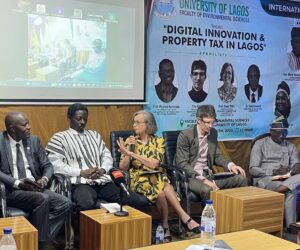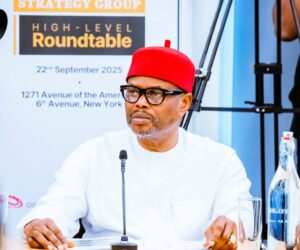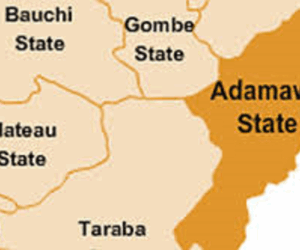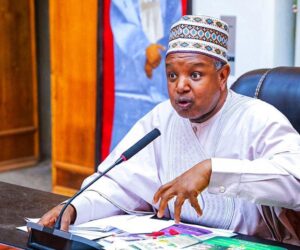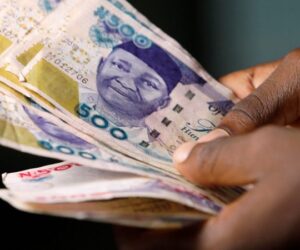The Federal Government has reiterated its commitment to strengthening Nigeria’s automotive industry through expanded support for local vehicle assemblers and accelerated investment in Electric Vehicle (EV) infrastructure.
Vice President Kashim Shettima, represented by Kingsley Tochukwu Udeh, Minister of Innovation, Science and Technology, made the pledge on Tuesday at the opening of the 25th Abuja International Motor Fair.
Declaring the fair open, Shettima described the 25-year milestone as a testament to the resilience and ingenuity of stakeholders who have sustained the annual exhibition despite economic and structural challenges.
He said the theme, “Driving Nigeria’s Automotive Future: Innovation, Sustainability, and Growth,” aligns with the administration’s Renewed Hope Agenda and its drive to make Nigeria the automotive hub of sub-Saharan Africa.
According to him, the automotive sector remains the engine of the Government’s transformation plan, offering a critical intersection between manufacturing, youth employment, technology, and the national energy transition.
He outlined the Government’s commitment to steering the industry on three pillars, Gas, Green, and Growth, through a strategic shift to Compressed Natural Gas (CNG) and New Energy Vehicles, including EVs.
Shettima disclosed that the Government had made N20 billion available through CreditCorp to finance the acquisition of locally-assembled vehicles. He noted that affordable financing is essential to boost demand and support local manufacturers.
“We acknowledge the need for innovative, bespoke financing packages with single-digit interest rates, specifically for Made-in-Nigeria vehicles. This is why the Government has provided 20 billion naira through Credit Corp to finance the acquisition of locally made vehicles.
“When a teacher, a nurse, or an entrepreneur can afford a quality, locally-assembled car, we do more than make a sale-we fuel a virtuous cycle of demand, production, job creation, and national economic stability. Finance is the grease for the wheels of industry; we encourage our commercial institutions to find innovative way to finance and support the automotive sector”, he said.
He added that through the Nigeria First Policy, the Government would continue to prioritise the procurement of Made-in-Nigeria vehicles across public and private institutions, while intensifying efforts to build EV charging infrastructure nationwide.
“Through the Nigeria First Policy we encourage all public and private businesses to prioritise Locally produced vehicles in all procurement. Rest assured that this government will provide the policy support and incentives to make Nigeria the undisputed hub for both CNG and Electric Mobility in West Africa”, he added
The National Automotive Design and Development Council (NADDC), he said, had already deployed solar-powered EV charging stations in select universities in line with the goal of building technical capacity among young Nigerians and strengthening the EV ecosystem.
Speaking also, Oluwemimo Joseph Osanipin, Director-General of NADDC, said the agency is working aggressively to revive and reposition the automotive sector through sustained implementation of the National Automotive Industry Development Plan (NAIDP).
He noted that market expansion, component development, and enhanced local capacity remain at the heart of the council’s agenda.
Osanipin revealed that Nigeria currently has about 30 active and serious assemblers with investments of nearly $1 billion in the sector.
He added that NADDC had trained over 30,000 technicians nationwide and established multiple automotive training centres and testing facilities, including material and component test centres in Zaria and Enugu, to support local production and ensure global standards.
While acknowledging the sector’s challenges, Osanipin said Nigeria’s large market, youthful population, and Government policy reforms create strong prospects for growth.
He announced ongoing collaborations with young innovators, including support for a locally designed bus expected to integrate Nigerian-made components.
In his remarks, Ifeanyichukwu Agwu, Managing Director of BKG Exhibition Limited and co-organiser of the fair, said the event had survived the highs and lows of Nigeria’s economic cycles, including periods of recession and uncertainty.
Agwu stressed that despite soaring exchange rates that had made vehicle ownership a struggle for many Nigerians, the sector had refused to collapse and would continue to reinvent itself. He called on all levels of Government to urgently establish a functional vehicle financing scheme to make car ownership affordable and stimulate demand.
“If our people cannot access mobility, our economy cannot move. Vehicle finance is not a luxury; it is a necessity”, he said.
Agwu further challenged Governments at all levels to give deliberate and strategic attention to the automotive sector, stating that with proper support it could reduce unemployment by 25%, grow the GDP by 18% and increase foreign investment by 21%.

